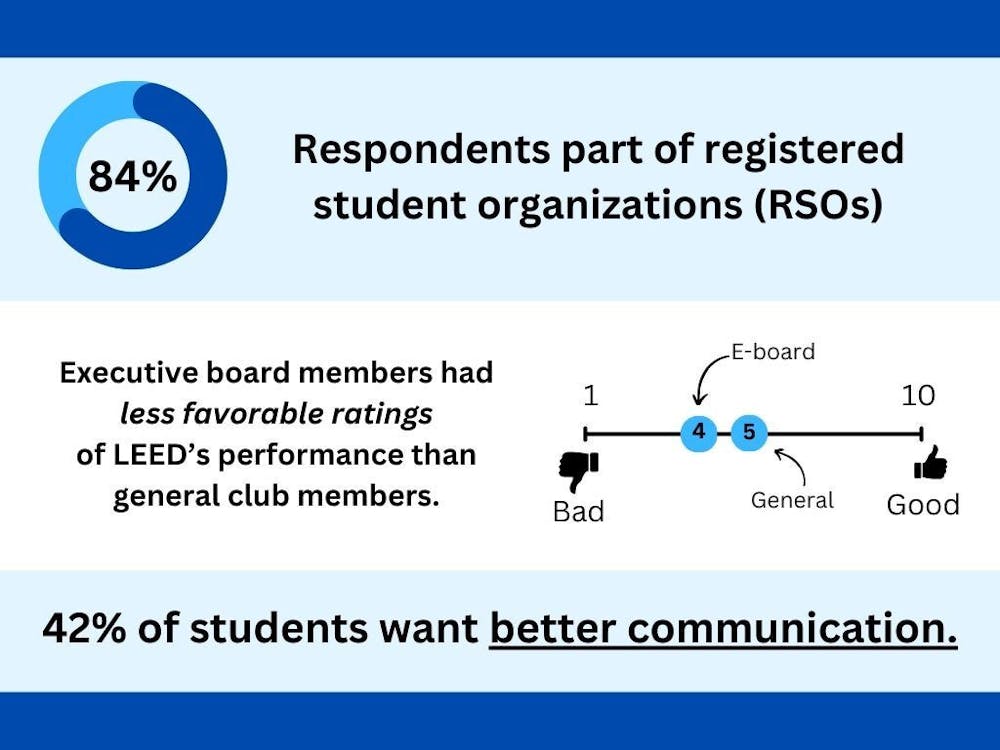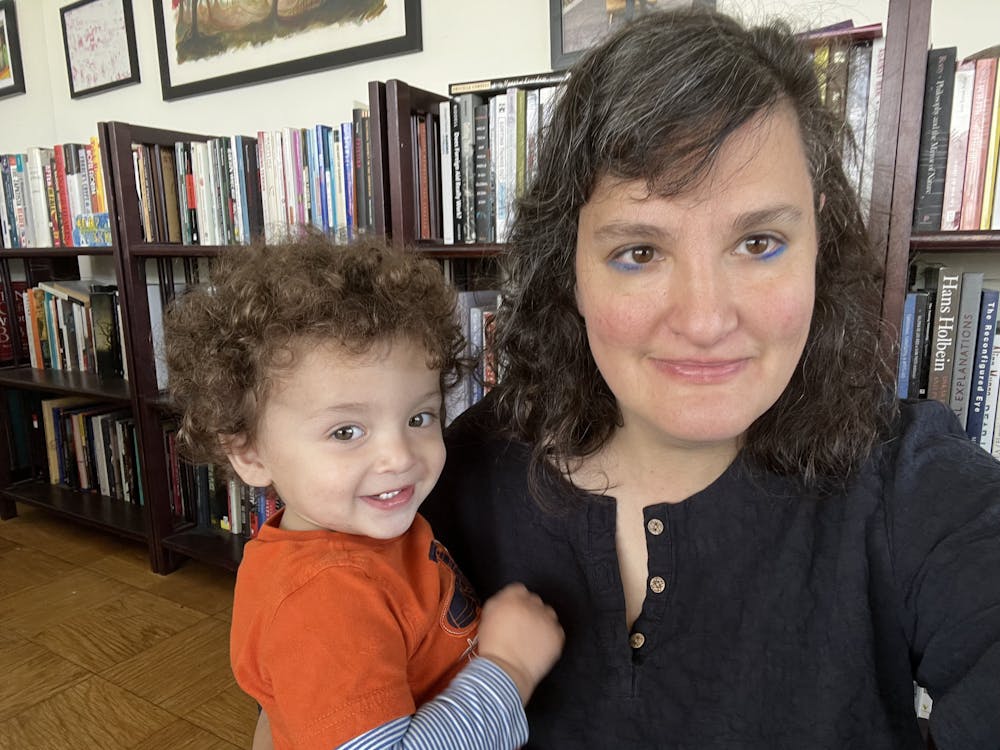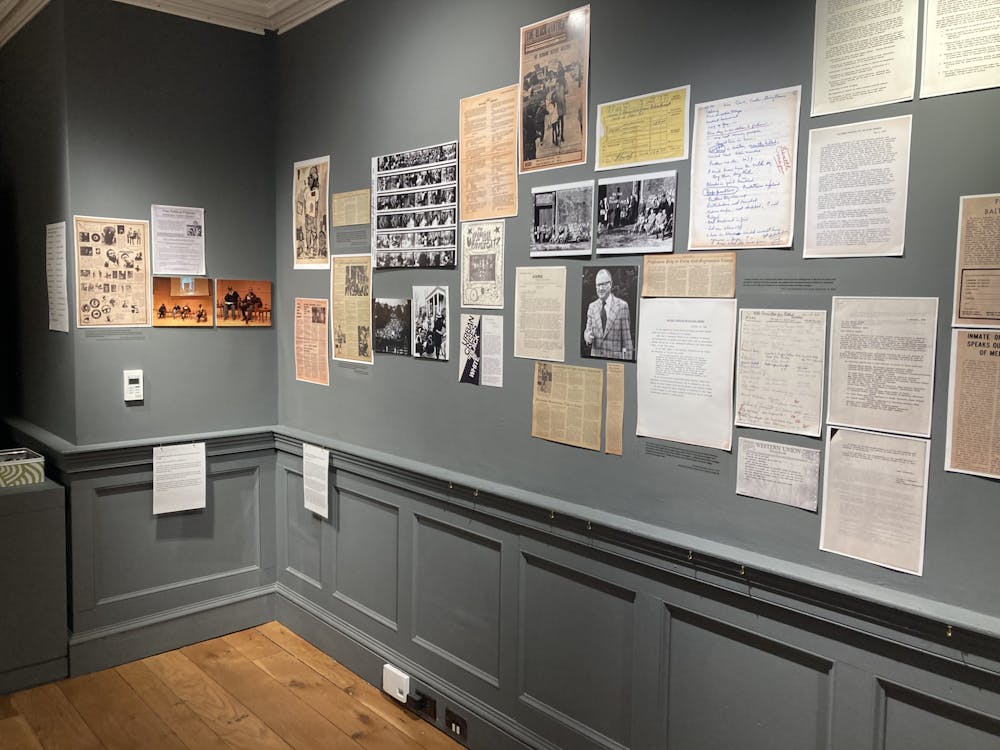TEDxJohnsHopkinsUniversity (TEDxJHU) hosted “Next Gen: TBD,” a day-long event featuring seven speakers and three student performance groups, in Mudd Auditorium on Saturday. TEDxJHU’s second-annual event focused on reflections on the past, discussions about the present and predictions for the future in several fields in the arts, sciences and economics.
“The excitement of the TED talks is bringing people together and realizing there is a place for everyone to address these challenges,” Kellogg Schwab, the director of the JHU Water Institute, said.
In his talk, Schwab discussed water deficit and issues with sanitation, which cause serious or even fatal health problems and stunt economic and social growth in communities across the world. Schwab specifically mentioned Hopkins graduate and faculty member Abel Wolman, for whom the Wolman Residence Hall is named, as a pioneer in water sanitation.
“In 1918, with his friend and colleague Linn Enslow, [Wolman] developed the right dose of chlorine in large pipes — enough to kill the bacteria, not too much to kill the people. He’s credited with saving more lives from water treatment than anyone else with respect to this treatment process,” Schwab said.
Freshman Astha Berry, the only student speaker, opened the event by discussing the importance and meaning of language and its continual evolution. She referred to these ideas as “the absolute value of words.”
“When you have the absolute value of words, there’s the perceived positive and negative connotations,” Berry said.
Berry explained how words such as “gay” have garnered different connotations and meanings over time.
“When you hear ‘gay,’ do you think of merriment? Because that’s actually where the word comes from,” Berry said. “[It has] turned from an adjective describing someone who’s very merry all the time to someone who’s homosexual to sometimes a derogatory term. But it all depends on the way it’s used and the context it’s used in. So it makes you think about what words we have used that are going to continue to change.”
Doreen Bolger, the director of the Baltimore Museum of Art (BMA), discussed the evolution of the museum since its founding in 1914.
“I think it’s important to remember that a lot of the BMA’s collection was formed and collected by people as contemporary art,” Bolger said. “The people who amassed those collections were speaking to living artists they knew and cared about. And the art that they were collecting was extremely relevant for their time and place. And I think, as we look to the future, we have an opportunity in the museum to continue and build on that foundation.”
Fred Bronstein, the dean of the Peabody Institute, discussed the seemingly waning relevance of classical music in modern society and the necessity of evolution of the genre.
“In many ways, I would say [classical music has] never been more challenged. But I would also say that the opportunities to communicate through and connect with classical musical [have never been more prevalent],” Bronstein said.
Bronstein stressed that classical music has continually survived, despite facing challenges.
“The Peabody Institute is 158 years old and it’s, in fact, the oldest conservatory in the United States today,” Bronstein said. “How many commercial or for-profit companies or businesses do you know that could make that claim or have even been around half that long?”
The event was broken up into three sessions: arts, sciences and economics. During the intermissions, attendees were able to talk with the speakers and ask questions. They could also visit booths set up by student organizations, including BME design teams, the I.D.E.A.L. Voting Club, the Outdoors Club and Boot Up Baltimore. Senior Ardian Latifi, who facilitated the event, hoped that it inspired attendees.
“Our theme is ‘Next Gen: TBD,’ and those last three letters suggest that the future is not set in stone but rather is a result of all of our combined actions. We hope the experiences you have [at this event] will help you shape our tomorrow,” Latifi said.
Kelly Peeler, the founder and CEO of NextGenVest, talked about the importance of making smart financial decisions in order to have an impact on the world.
“You can only change the world to the extent that you want and the speed you want by knowing about one topic. And that’s money,” Peeler said. “We [at NextGenVest] believe that every student should receive low-stress financial education and guidance to set them up for success [so they can] change the world.”
John Krakauer, a professor of Neurology at the School of Medicine and Neuroscience in the Krieger School of Arts and Sciences (KSAS) who is a co-founder of the KATA project and the director of both the Brain, Learning, Animation and Movement Lab (BLAM) and the Center for the Study of Motor Learning and Brain Repair, discussed his work regarding strokes. He believes that stroke patients may have a better chance of recovering more brain and motor function if they begin therapy immediately after suffering a stroke, rather than waiting one or two weeks, which is the common practice today.
Krakauer discussed the results of experiments he has done on mice, which support his theory. The mice were trained to do a certain task and were then given a stroke. A week later, they trained again, but they never achieved the same level of proficiency as before. When researchers did not wait a week to retrain the mice, the results were markedly different.
“You give them a stroke, [start training] and [the levels of proficiency] go within a day back to normal. So [in] one day, somehow for the same amount of training you can get a lot more back than if you wait,” Krakauer said.
Mario Macis, an assistant professor of Economics and Management at the Carey Business School, concluded the event by discussing his idea of providing financial incentives for "donating" body parts.
Macis was well aware of the controversial nature of his topic and referenced a quote from Paul Bloom, a Yale psychology professor, that appeared in the New York Times.
“He said that ‘The problem with economists is not that [they’re] unreasonable people, it’s that [they’re] evil people,’” Macis said.
Macis argued that his idea of providing economic incentives for body part donation is not evil, and asserted that it could benefit society.
“Even though we witness lots of generosity and altruism in the world every day, it isn’t enough when it comes to the supply of life-saving blood and organs,” Macis said.
Macis acknowledged that economically incentivized donations could reduce the number of altruistic donations or could cause donors to lie about their medical history and health problems.
“[My colleagues and I] studied data from about 14,000 blood drives and look[ed] at the effect of a variety of incentive items provided to these blood donors. And we found positive effects of incentives,” Macis said. “We found that incentives were inducing more people to donate, increasing the number of blood units actually collected. And on the measure of safety or blood quality, we didn’t find any adverse... effect on the safety margin.”
Macis also discussed the ethical concerns with respect to providing economic incentives for donations. Macis argued many people favor incentivized donation after learning more about the reasons behind it.
“My colleagues and I conducted a randomized online experiment where the treatment group was provided information about the organ shortage in the United States and the estimated effects that payments would have on reducing the shortage,” Macis said. “A substantial fraction of the respondents were persuaded to favor a regulated system of organ payments when provided with information.”
In addition to speakers, the event also featured performances by SLAM, the Hopkins String Quartet and the Octopodes.
Freshman Anna Du, a member of the TEDxJHU staff, worked with Schwab in preparation for his talk and monitored the livestream and social media comments during the event. She believes that the event’s most important function was to bring together people within the Hopkins community and outside of it.
“I joined TEDxJHU because I love how the organization brings together so many inspiring and talented individuals from the Hopkins community,” Du said. “The event was a wonderful way for me to connect with my peers and professors by learning about their passions. Moreover, I got to meet people who weren’t affiliated with Hopkins, which was really exciting.















Please note All comments are eligible for publication in The News-Letter.